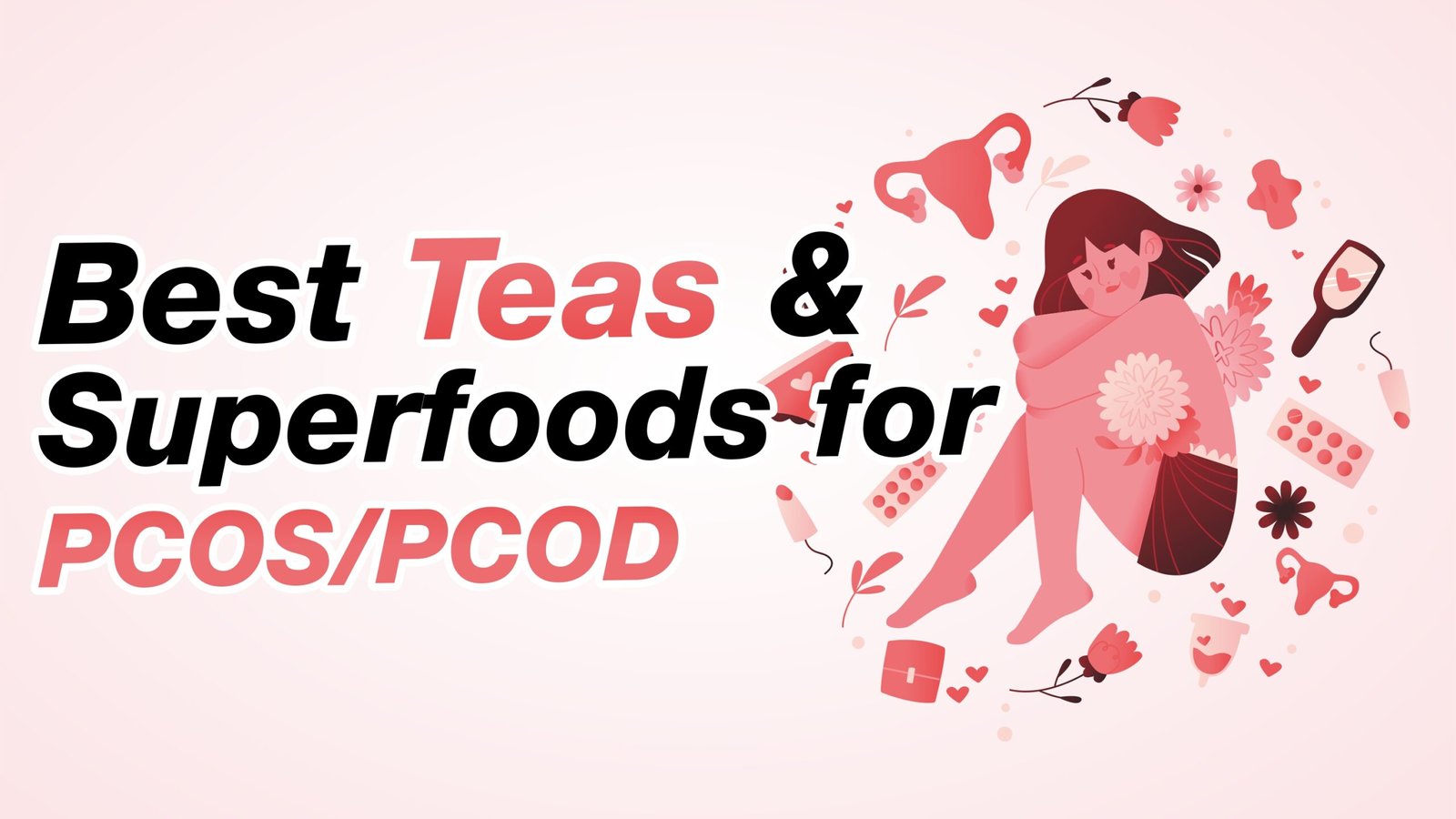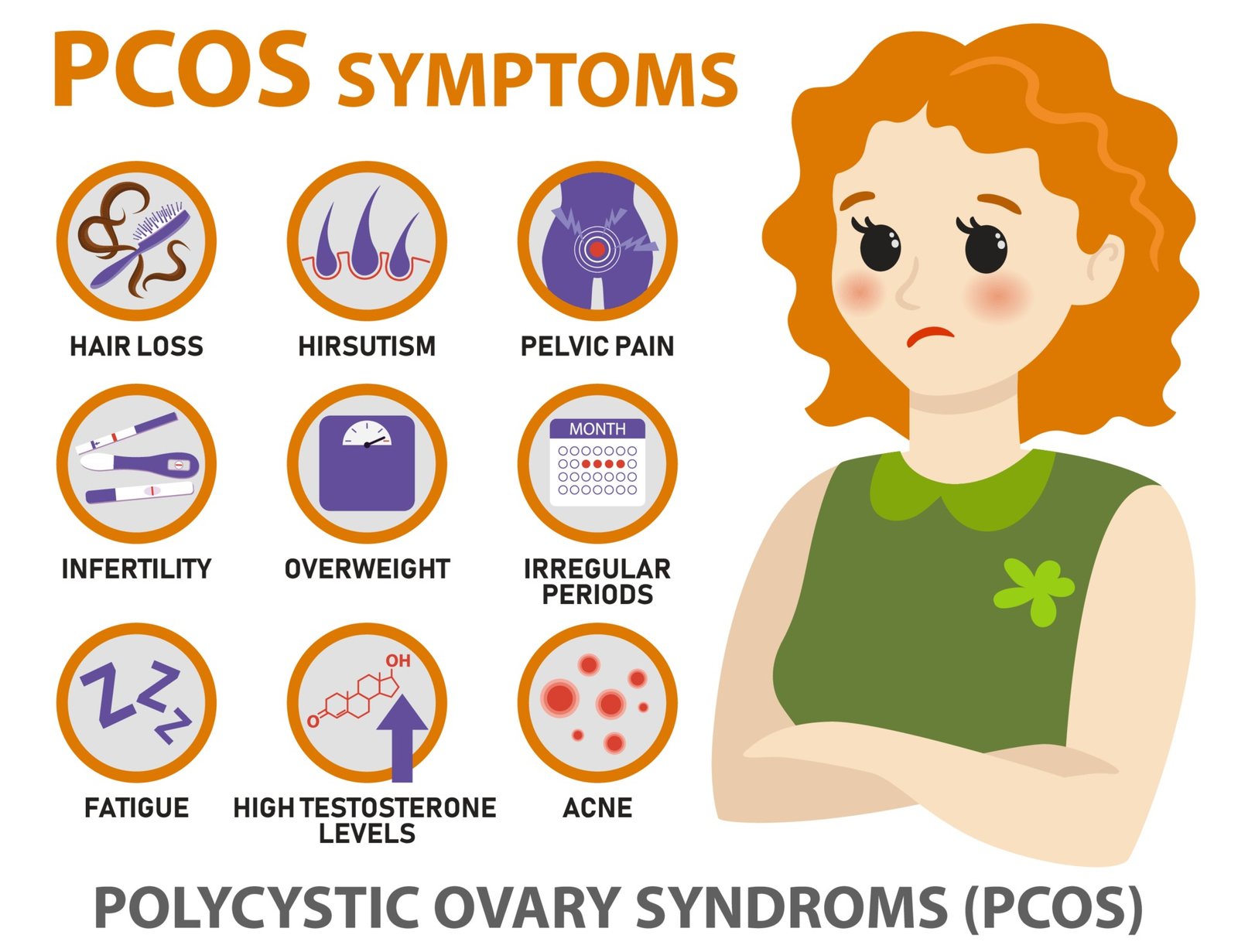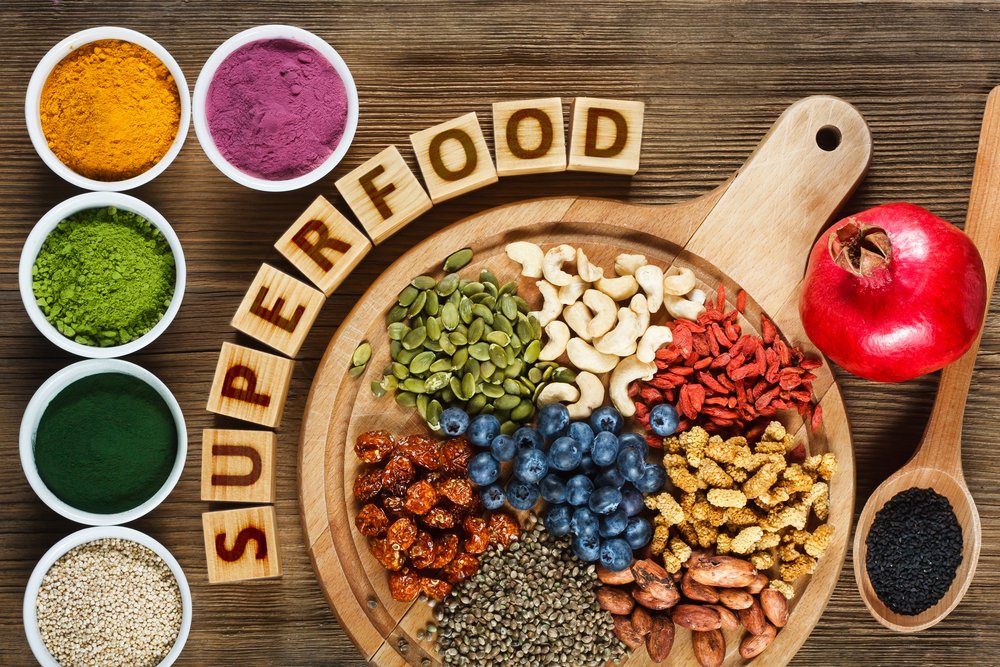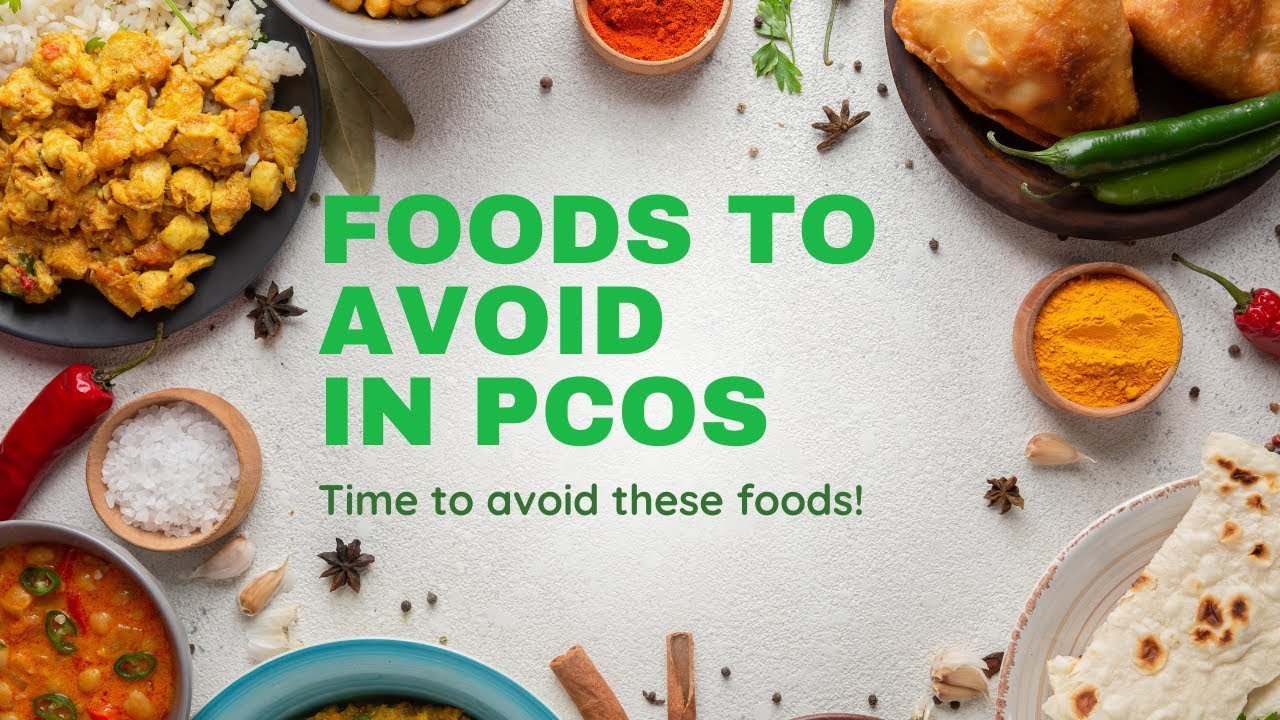
10 Best Sipping Teas and Superfoods for PCOS and PCOD Management
Are you facing an irregular menstrual period and facing unwanted facial hair? Almost every third woman is facing this problem that leads to sudden mood changes, Acne, fatigue, weight fluctuations and thinning hairline.
Living with Polycystic Ovary Syndrome (PCOS) or Polycystic Ovarian Disease (PCOD) can feel like a constant battle with your body. But what if the simple act of sipping a cup of tea could become an ally in your fight?

Alongside superfoods that pack a nutritional punch, certain teas can play a pivotal role in managing these conditions. Let’s steep into the world of teas and superfoods that are not just good but great for PCOS and PCOD.
For many, a warm cup of tea is a soothing ritual, a moment of calm in the chaos of daily life. But when you’re dealing with conditions like Polycystic Ovary Syndrome (PCOS) and Polycystic Ovarian Disease (PCOD), every sip and bite could be a step toward balance or imbalance. In this deep dive, we’ll explore the types of tea that may benefit or hinder your health journey and highlight the foods best left off your plate.
Tea Time: Top Brews for Hormonal Balance
When it comes to teas, some are particularly beneficial for those with PCOS and PCOD:
-
Spearmint Tea:
A pleasant smelling front-runner in the race for hormonal equilibrium, spearmint tea is known for its potential to lower androgen levels. This will reduce facial hair, decrease your stress and improve the sleep cycle in women.
2. Green Tea:
It is good for fat burning and packed with antioxidants, green tea supports metabolism and may help with weight management, a common concern in PCOS/PCOD.
3. Chamomile Tea:
This tea is a perfect gentle brew that can reduce stress and promote better sleep and relax your gut, both of which are crucial for hormonal health.
4. Ginger Tea:
It will help in healing the menstrual cramps pain as well as lower the inflammation of ovaries caused due to PCOS.
What’s Best for Hormonal Harmony?
Tea can be a double-edged sword in hormonal disorders. Green tea, for instance, has been celebrated for its weight management properties and high antioxidant content—both beneficial for PCOS and PCOD warriors.

Yet, moderation is key, as too much caffeine from teas like black or oolong can disrupt insulin sensitivity and stress levels that can worsen your pcos/pcod.
Spearmint tea emerges as a shining star, with studies suggesting it can help reduce excess androgen levels, common in PCOS/PCOD sufferers.
Herbal infusions such as chamomile might also offer a calming effect without the caffeine kick, promoting better sleep and reduced stress.
But the crown jewel among teas for PCOS and PCOD might just be Cinnamon Tea. Cinnamon is lauded for its ability to improve insulin sensitivity, a significant factor in these conditions.
Remember that these teas will help you to relieve your symptoms but it is not the cure of your pcos/pcod.
Superfoods: Your Dietary Heroes in PCOS and PCOD

Superfoods are not just a trend; they’re nutrient-dense foods that can have a profound impact on your health. Here are some superstar’s foods for PCOS and PCOD:
5. Berries:
Blueberries, strawberries, and raspberries are rich in antioxidants and low on the glycaemic index, making them sweet allies.
6. Leafy Greens:
Spinach, kale, and Swiss chard are full of vitamins and minerals that support overall health and hormone balance.
7. Nuts and Seeds:
Chia seeds, flaxseeds, and walnuts provide omega-3 fatty acids, which combat inflammation and support heart health.
The ultimate superfood for PCOS and PCOD might be the humble Inca berries. Also known as Peruvian ground cherry, this tart fruit is bursting with bioflavonoids (any of a group of compounds occurring mainly in citrus fruits), which are thought to improve insulin resistance and aid in weight control.
Foods to Avoid with PCOS and PCOD

Your diet plays a starring role in managing PCOS and PCOD. It is always wise to avoid the foods that will make your disease worsen, foods can be boon if you know the benefits and disadvantages. Here are some foods, however, are more like villains in disguise:
- Refined Sugars and Carbohydrates: These quick energy sources lead to rapid spikes in blood sugar and insulin, which can exacerbate PCOS/PCOS symptoms.
- Processed Snacks and Meats: Often high in unhealthy fats and additives, these can contribute to inflammation and weight gain.
- Sugary Beverages: Soda, energy drinks, and even some fruit juices can have a similar effect to refined sugars, disrupting your metabolic harmony.
- Dairy Deliberations: Dairy’s role in PCOS/PCOD is controversial; some evidence suggests it might worsen symptoms due to its potential to increase androgen levels. Even eating too much chocolate during periods are not good. Limit your sugar intake if you are facing pcos/pcod.
Embracing Nutritional Allies: Foods That Nourish and Heal
While certain foods and beverages might be off the menu, there’s a cornucopia of options that can nourish your body and support your PCOS/PCOD management:
-
Fibre-Rich Veggies:
Broccoli, Brussels sprouts, and other fibrous vegetables help maintain blood sugar levels and digestive health.
-
Sustainable Proteins:
Incorporating plant-based proteins like lentils and quinoa can provide energy without the hormonal impact of some animal products.
-
Antioxidant Abundance:
Berries, dark chocolate, and green tea (in moderation) offer antioxidants that combat inflammation.
-
Omega-3 Fatty Acids:
Found in fish like salmon and in flaxseeds, these fats are essential for reducing inflammation and supporting heart health.
Conclusion: Savouring the Right Sips and Bites for PCOS and PCOD
Your journey with PCOS and PCOD doesn’t have to be one of restriction and confusion. By embracing the right teas and incorporating superfoods into your diet, you can create a delicious and healthful regimen that supports your body’s needs. Remember, each individual is unique, so it’s important to listen to your body and consult with healthcare professionals to find the best dietary strategy for you.
By choosing the right teas and embracing whole, unprocessed foods, you can take control of your symptoms and enjoy the vibrant health you deserve. This problem is connected with your lifestyle, you need to follow a healthy diet routine as well as physical exercise, and both will work wonders in this problem. You must consult with a gynecologists’ for a complete treatment.
Learn from NFCI Culinary Arts and make healing teas and healthy recipes that will improve your regular diet.





